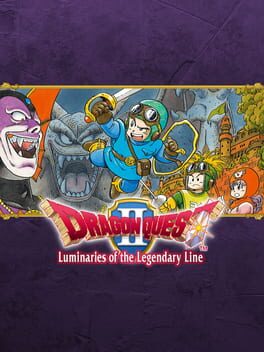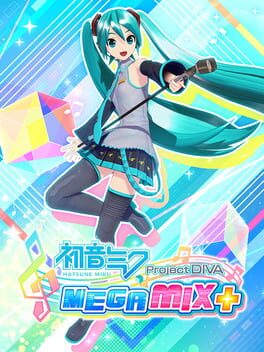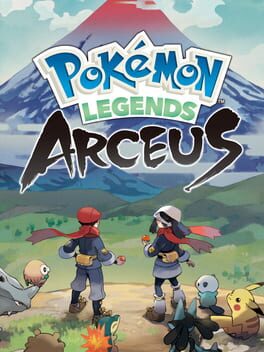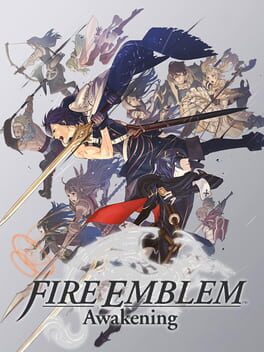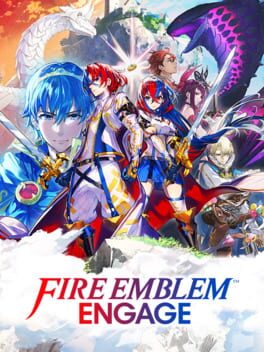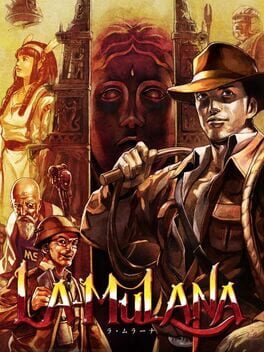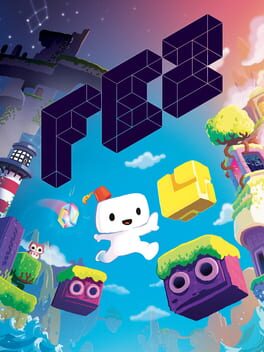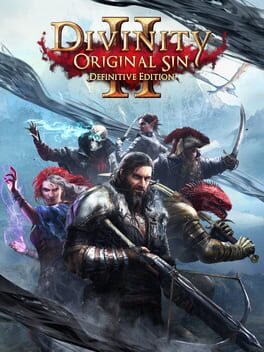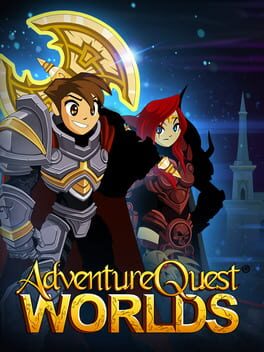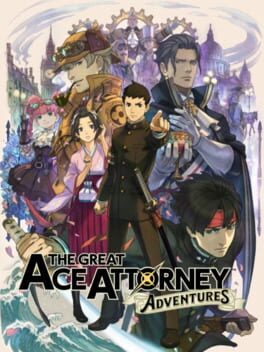Minish
I really like the early parts of DQ2. Going on a journey, just hanging out and fighting monsters, exploring dungeons and figuring out where to go next. It was great to get owned, get a new party member, and then go back to those encounters with my new buddy and wipe the floor with them.
As soon as I got the ship, the map suddenly exploded in size, but it took as long to get anywhere as it already did, and how to progress became completely unclear to me. It felt like the game lost the subtle guidance that made the earlygame so engaging, which was frustrating for me.
I had really low expectations going into the lategame, but it actually went really quickly, or felt like it did. For that last hour, I felt like it was my journey again - going through an exciting lair, tackling a string of well-paced bosses. I felt really happy with the conclusion but wish I had had as much fun in the 19 hours before then.
Overall, feel less fond of DQ2 than DQ1 - a majority of my playtime was spent not having fun - but I really liked the beginning and end of it.
As soon as I got the ship, the map suddenly exploded in size, but it took as long to get anywhere as it already did, and how to progress became completely unclear to me. It felt like the game lost the subtle guidance that made the earlygame so engaging, which was frustrating for me.
I had really low expectations going into the lategame, but it actually went really quickly, or felt like it did. For that last hour, I felt like it was my journey again - going through an exciting lair, tackling a string of well-paced bosses. I felt really happy with the conclusion but wish I had had as much fun in the 19 hours before then.
Overall, feel less fond of DQ2 than DQ1 - a majority of my playtime was spent not having fun - but I really liked the beginning and end of it.
I only got how artificial the player's journey in previous titles was after playing this game. Your journey was through routes, cuts through nature, created by the human inhabitants of the Pokemon world. You don't get to see nature, because nature itself is captured by humans. The 'mons inhabit an artifice. The world is a zoo.
In Pokemon Legends: Arceus, the world belongs to no one, and the 'mons are free.
In Pokemon Legends: Arceus, the world belongs to no one, and the 'mons are free.
2023
2005
2012
La-Mulana is not the kind of game willing to simply give you it's secrets. La-Mulana is not the kind of game that expects you to earn it's secrets, either. In truth, La-Mulana doesn't really care what you give it to get it's secrets, because for La-Mulana, it will never be enough.
La-Mulana doesn't want you to have it's secrets. La-Mulana doesn't think you DESERVE it's secrets. If you want La-Mulana's secrets, you're going to have to pry them from it's cold, dead hands.
That's right. You're going to have to kill La-Mulana.
La-Mulana doesn't want you to have it's secrets. La-Mulana doesn't think you DESERVE it's secrets. If you want La-Mulana's secrets, you're going to have to pry them from it's cold, dead hands.
That's right. You're going to have to kill La-Mulana.
2012
This review contains spoilers
Writing this while after having solved all the ciphers and collected 29:28 cubes, standing in front of the clock tower while slowly decoding the Tome Artifact in a journal and on graph paper, letter by letter, haiku by haiku. I feel really calm and focused and relaxed in a way I really can't remember any other game making me feel, at least on purpose. This is really something special.
1999
2022
I remember the moment I decided I was going to play Elden Ring, three months before I actually did buy it in April.
A friend of mine sent me an interview of the game's director. In said interview, he made a number of comments that really interested me, in particular what he said when he was asked how recent discourse over accessibility in video games impacted the development of Elden Ring. He said:
"We understand that Souls-like games are regularly associated with impossible levels of difficulty with high barriers to entry. But we try to design the games to make the cycle of repeatedly trying to overcome these challenges enjoyable in itself. In Elden Ring, we have not intentionally tried to lower the game’s difficulty, but I think more players will finish it this time.
...the player’s level of freedom to progress through the world or return to a challenge later are all elements that I feel will help people get through the game at a more leisurely pace. [T]here isn’t a focus on pure action. The player has more agency to dictate their approach against, for example, the field bosses in the overworld and how they utilize stealth in various situations. We’ve even reduced the number of hoops that you have to jump through to enjoy it in multiplayer. So we hope the players embrace that idea of receiving help from others."
This wasn't the only thing that made me want to play Elden Ring. I was also interested by the director's comments on the benefits of player freedom, and the joy of discovery - how finding something out of your own intuition, without compass to direct you or a quest log to read, is the greatest thing you can do for a player when crafting them a journey. I found that idea very charming!
But I had always struggled to actually want to play the distorted image that had been crafted online of a "Soulsborne" game: where the only solution to problems is to brute force them; where there's only one way to play, and you just have to get good. Hearing Miyazaki Hideteka emphasise the freedom and wealth of choices offered by Elden Ring, and that asking for help is a valid strategy to tackling obstacles, sold me on the game immensely.
Elden Ring is a game made to give you freedom. In exploration, where you can go wheresoever you want, as well as in combat, where you can take whatever strategy you so wish.
If you fail a challenge the game poses, you can simply do something else in the game's vast world. By the time you return, you will have more cards to play, with new gear, new magic, new summons, and better stats - you're never forced to rely on just your cunning. You're never locked into one path where you have to bash your head against a wall, but free to pursue a different one and give it another go later.
What helps create that sense of freedom is that the game never actually tells you where to go. There are criteria you have to meet to win, sure, and you are told the names of token-bearers you have to fight to succeed. But you're never given a beacon pointing to their direction, and often, there's more than one way to get to them. I probably missed out on a number of things that I could have seen had I reached those points in one specific way.
It's truly stunning how the game gifts the player this freedom, yet remains meticulously well-designed. There's never something that feels only there to fill space, nor is there substantial space the game declines to fill. It's an incredibly vast game, yet still manages to have the narrow focus of a game a thousand times smaller in scope.
Elden Ring is pretty indisputably the best designed action-RPG I've ever played, and probably the very first open world game to truly game-design the freedom the genre has been promising for the better part of two decades.
As a side note, while clearly not the biggest focus for the game - nor does it need to be - I was still impressed by the depth of the game's narrative.
The game is scant on expository dialogue, with character interactions almost always focused on progressing their personal stories while imparting you with impressions of their personalities. Your time with these characters is usually very brief, but the game still finds the time to make a great deal of them pretty charming. I'm a big fan of Millicent.
A friend of mine sent me an interview of the game's director. In said interview, he made a number of comments that really interested me, in particular what he said when he was asked how recent discourse over accessibility in video games impacted the development of Elden Ring. He said:
"We understand that Souls-like games are regularly associated with impossible levels of difficulty with high barriers to entry. But we try to design the games to make the cycle of repeatedly trying to overcome these challenges enjoyable in itself. In Elden Ring, we have not intentionally tried to lower the game’s difficulty, but I think more players will finish it this time.
...the player’s level of freedom to progress through the world or return to a challenge later are all elements that I feel will help people get through the game at a more leisurely pace. [T]here isn’t a focus on pure action. The player has more agency to dictate their approach against, for example, the field bosses in the overworld and how they utilize stealth in various situations. We’ve even reduced the number of hoops that you have to jump through to enjoy it in multiplayer. So we hope the players embrace that idea of receiving help from others."
This wasn't the only thing that made me want to play Elden Ring. I was also interested by the director's comments on the benefits of player freedom, and the joy of discovery - how finding something out of your own intuition, without compass to direct you or a quest log to read, is the greatest thing you can do for a player when crafting them a journey. I found that idea very charming!
But I had always struggled to actually want to play the distorted image that had been crafted online of a "Soulsborne" game: where the only solution to problems is to brute force them; where there's only one way to play, and you just have to get good. Hearing Miyazaki Hideteka emphasise the freedom and wealth of choices offered by Elden Ring, and that asking for help is a valid strategy to tackling obstacles, sold me on the game immensely.
Elden Ring is a game made to give you freedom. In exploration, where you can go wheresoever you want, as well as in combat, where you can take whatever strategy you so wish.
If you fail a challenge the game poses, you can simply do something else in the game's vast world. By the time you return, you will have more cards to play, with new gear, new magic, new summons, and better stats - you're never forced to rely on just your cunning. You're never locked into one path where you have to bash your head against a wall, but free to pursue a different one and give it another go later.
What helps create that sense of freedom is that the game never actually tells you where to go. There are criteria you have to meet to win, sure, and you are told the names of token-bearers you have to fight to succeed. But you're never given a beacon pointing to their direction, and often, there's more than one way to get to them. I probably missed out on a number of things that I could have seen had I reached those points in one specific way.
It's truly stunning how the game gifts the player this freedom, yet remains meticulously well-designed. There's never something that feels only there to fill space, nor is there substantial space the game declines to fill. It's an incredibly vast game, yet still manages to have the narrow focus of a game a thousand times smaller in scope.
Elden Ring is pretty indisputably the best designed action-RPG I've ever played, and probably the very first open world game to truly game-design the freedom the genre has been promising for the better part of two decades.
As a side note, while clearly not the biggest focus for the game - nor does it need to be - I was still impressed by the depth of the game's narrative.
The game is scant on expository dialogue, with character interactions almost always focused on progressing their personal stories while imparting you with impressions of their personalities. Your time with these characters is usually very brief, but the game still finds the time to make a great deal of them pretty charming. I'm a big fan of Millicent.
1997
It's been an absolute pleasure to discover that not only is Final Fantasy VII an iconic video game, which I already knew, but that it's also an excellent video game, which I didn't.
It feels so well considered in every regard... the pacing is so immaculate, the artstyle is beautiful (even if strangely contrasting at times, but that just makes it feel unique). It feels like it trusts me to make my own decisions - the path I took to making my build with the AMAZING Materia system feels entirely my own in a way that initially felt overwhelming but now feels so empowering. I invested HEAVY in Enemy Skills materia and it RULES ... but there's also so many other alternative avenues I could have taken, and that feels amazing.
I will never know how I would have reacted to the big twists in FF7 if I didn't know them going in. There was no way to avoid it because of how fundamental FF7 is in the history of the medium. But that doesn't matter! They are still resonant beats of a well-composed narrative.
It feels so well considered in every regard... the pacing is so immaculate, the artstyle is beautiful (even if strangely contrasting at times, but that just makes it feel unique). It feels like it trusts me to make my own decisions - the path I took to making my build with the AMAZING Materia system feels entirely my own in a way that initially felt overwhelming but now feels so empowering. I invested HEAVY in Enemy Skills materia and it RULES ... but there's also so many other alternative avenues I could have taken, and that feels amazing.
I will never know how I would have reacted to the big twists in FF7 if I didn't know them going in. There was no way to avoid it because of how fundamental FF7 is in the history of the medium. But that doesn't matter! They are still resonant beats of a well-composed narrative.
Like listening to the post-hiatus album of an artist I already knew was good.
A magnificent series of mystery stories, all of which feed a compelling narrative throughline for it's wonderfully written main cast. This game succeeds at everything it sets out to do, delivering engaging stories that are - on their own terms - as good Ace Attorney cases as they are detective stories. Heartily recommend to anyone, whether they've played other Ace Attorney games or not.
A magnificent series of mystery stories, all of which feed a compelling narrative throughline for it's wonderfully written main cast. This game succeeds at everything it sets out to do, delivering engaging stories that are - on their own terms - as good Ace Attorney cases as they are detective stories. Heartily recommend to anyone, whether they've played other Ace Attorney games or not.
